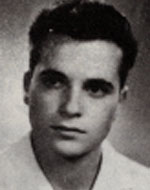Avishay (Avi), son of Leah and Moshe, was born on April 24, 1949, in Haifa. He attended the “Shalva” elementary school and the “Reali” school in the Orientalism track. My father was a diligent student, intelligent, persistent and broad-minded, and interested in many different fields. When he was in first grade, he knocked on the door of the school principal’s room and asked: “Would you like to hear a song?” And recited poems by Leah Goldberg, Benjamin Tene and others. He had a multi-faceted intellectual curiosity and an original thought. He excelled in his studies and was highly regarded by his teachers and teachers. Avishai was patient and patient, but his inner world was stormy and familiar. At the same time, he did not hide or seclude himself, and he knew how to make fun of himself and even play around with his many friends. He lived in a house surrounded by a garden with trees and flowers, a livestock and a dog. He loved this courtyard very much, spent hours in it, and found an outlet for the tension. He played the accordion and loved to listen to music, enjoying a concert and singing. My father was very careful about his appearance: always combed and his clothes neat and clean. His sixth grade teacher writes: “I will always remember him Yaffa, upright, proud and wise.” My father was devoted to his parents and loyal to his friends. One of them writes about him: “I assessed Avishai’s willingness to help, to listen patiently to the problems of others, to listen politely and then to run around, to contribute his time, energy, and thought to help others without giving and taking. To anyone who has proven its accuracy and justice. ” Avishay was drafted into the IDF in July 1967 and assigned to the Intelligence Corps, where he completed a regular army training course for officers, a parachuting course, and a course for intelligence officers. He spent most of his time in Sinai, trying not to worry about his parents, and in letters he wrote, he always knew how to calm them down, and he achieved many achievements in his field of work and everyone regarded him as an excellent officer. Aksa, whom he was going to marry, with Tom Shai Rotho went on to graduate studies in areas that had a certain continuation of his military activity, and at Tel Aviv University, he completed his studies in the history of the Middle East and the Arabic language, and one of his teachers at the university testified that he was “pleasant, loved by his teachers and friends. His inner world was rich, he was sharp in his arguments and with his persuasion, serious, punctual and thorough; Aware of social and political problems and intellectual honesty. “Shani writes that he was able to formulate his words simply, accurately, and logically, and that his translations from Arabic to Hebrew, whether orally or in writing, benefited from the culture, linguistic discipline, logic, and simplicity of formulation. “The candidate for the Academy of Language was named” the candidate for the Academy of Language, “and a third said:” He was prominent during discussions in the Department of Middle Eastern History and the Shiloah Institute. Original and bold in ideas, thorough and deep in research work. It was natural for Abishai to finish his studies with honors. “In the second year of his studies at the university, he enchanted Avishai with a single building in Shekh-Munis, and with his enthusiasm he caught up with two of his friends and together they settled there, but it was not an isolated island, About three weeks before the outbreak of the war, he was offered the opportunity to concentrate on the Shiloah Institute the section dealing with the subject of the Arabs of Israel, a section that the head of the Institute attests, which is undoubtedly the most difficult, since it requires not only knowledge Theoretical, but also a practical sense and ability to act onArab sector in Israel. It is no coincidence that Avishai was invited to head it. When the Yom Kippur War broke out he was sent with his unit to the front in Sinai. On the 22nd of Tishrei 5740 (October 22, 1973), in the harsh shelling of Tel Genifa, west of the Canal, he urged everyone to action and encouraged them by saying “each and every one of us.” Indeed, he was hit by shrapnel from a shell and killed – eight days before his wedding. He was brought to rest in Haifa. He was survived by a father, mother and brother. After his fall, he was promoted to captain. In his letter of condolence to the bereaved family, his commander wrote: “Avishai has earned him many friends among his people and great admiration among his commanders.” The head of the Shiloh Institute wrote: “When it fell, the Institute lost one of its senior employees and the community of Orientalists, one of its promising young sons.” The principal of the “Reali” school wrote a letter to his parents: “One of our best graduates was taken away from us, to fill important positions in the life of the state.” After his fall, the institute published his research “The Ideological Development of the Revolutionary Regime in Egypt”; The Ministry of Foreign Affairs distributed in English, a research project it conducted for the Ministry; His parents published a pamphlet in his memory, including the words of the family, friends, teachers and commanders; In his memory, a pedagogical library was established at the Gavrieli School in Haifa, where his mother works as a librarian; In his military unit, his name was immortalized in a facility where he worked and was called “Beit Avishai”. At the Shiloh Institute, a permanent symposium is held in his memory once a year; A scholarship is awarded to a student of Oriental Studies at Tel Aviv University every year.
